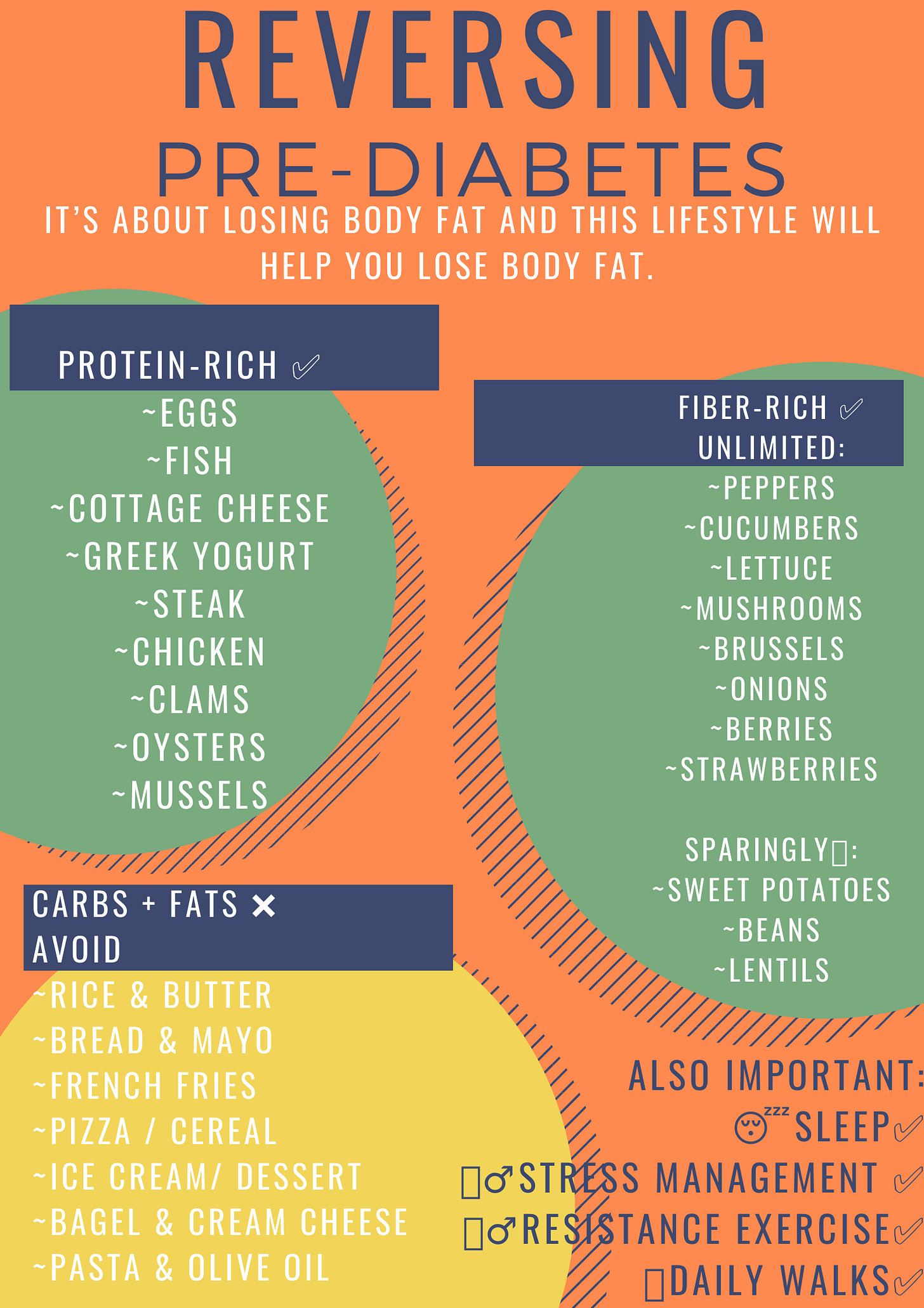3 Steps to Reversing Pre-Diabetes
Pre-diabetes and type 2 diabetes are predominantly caused by being over-fat (and under muscled). I’m not going to claim to be an expert on either but the research I’ve read has clearly shown that being over-fat and under-muscled puts us in a high-risk category.
“Estimated Body Fat% associates strongly with Type 2 Diabetes. Low Skeletal Muscle % also has a significant association, suggesting a neglected aspect of aetiology within Type 2 Diabetes. “(1)
So if you’re worried about pre-diabetes, diabetes or are on the brink of getting it, you need to work on making a better body composition. This means, less body fat, and more muscle.
Luckily, we know I know a decent amount about body recomposition. A high protein diet makes most people naturally eat less (and causes large losses of body fat), while resistance exercise challenges our muscles (and builds them up). The high protein diet also has other advantages, such as being more thermic, which lowers the net caloric load and can help with weight loss. Other studies show there might even be an effect on spontaneous movement, leading to more fat loss. I always said, someone is more likely to be active after eating an omelette instead of a bowl of cereal along with some pop-tarts.
So I think preventing or reversing diabetes has to be no more complicated than eating a high protein diet (to lose body fat) and exercising progressively to build strong muscle.
In fact, an intervention study showed a 100% reversal of pre-diabetes on a high protein diet:
“This is the first dietary intervention feeding study, to the best of our knowledge, to report 100% remission of pre-diabetes with a High Protein diet and significant improvement in metabolic parameters and anti-inflammatory effects compared with a High Carb diet at 6 months(2).
Wow, that’s impressive, a 100% reversal, lowered inflammation and better overall health.
I am not a doctor and this isn’t medical advice but here is how I would reverse pre-diabetes if I had to do it.

Other bonus points: Don’t eat too often. Another intervention study had people eat twice a day (and walk for 45 minutes) and also had a 100% reversal of pre-diabetes(3). This also makes logical sense. The average American eats 6-11 times per day. If you eat twice per day (or even three times) you’ll naturally eat alot less, and lose body fat.
So I think there can be a synergistic effect here of 2-3 meals per day and also the high protein diet. Oh yeah, make sure you lift weights too to build muscle.
So to recap.. pre-diabetes and T2 diabetes are really caused by poor body composition. This means holding a lot of body fat and not enough muscle. We should aim to live a lifestyle that allows us to have a healthy body composition (be lean and strong). As I’ve stated many times before this will come from:
1) The High Protein(30% of calories) Diet *
2) Eating less often *
3) Challenging our muscles - daily walking, lifting weights and moving in ways we find fun play a huge role in how much lean body mass we hold, which prevents diabetes.
*These two intervention studies showed a 100% reversal of pre-diabetes. So why not combine the two? A high protein diet, and not eating too often (2-3 meals). Simple enough for me.
That and throw in some weight lifting, random walks and some fun social movement (like ripping up dance floors or playing a sport) and you’ll regain a healthy body comp and watch your risk of pre-diabetes/T2 diabetes fade away.
Time to lose fat (and gain muscle)
>>>The high protein diet
>>>Reduced Eating Frequency
>>>Get active, and gain muscle (weight lifting, anyone?)
JD
Refs:
(1) Han, Thang S., et al. "Associations of BMI, waist circumference, body fat, and skeletal muscle with type 2 diabetes in adults." Acta diabetologica 56.8 (2019): 947-954.
(2) Stentz, Frankie B., et al. "Remission of pre-diabetes to normal glucose tolerance in obese adults with high protein versus high carbohydrate diet: randomized control trial." BMJ Open Diabetes Research and Care 4.1 (2016): e000258.
(3) Dixit, Jagannath V., and Sanjeev Indurkar. "Effect of eating frequency on prediabetes status: a self-controlled preventive trial." International Journal 4.4 (2017): 171.


